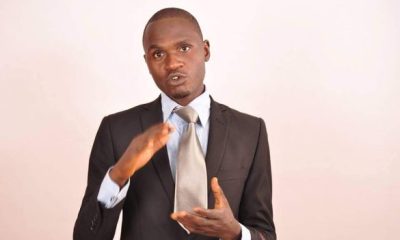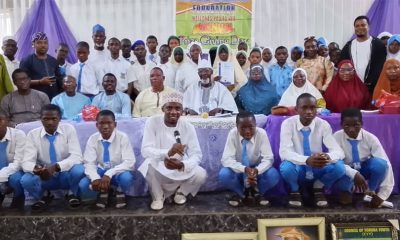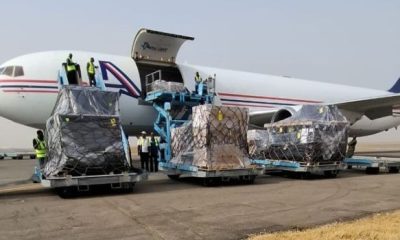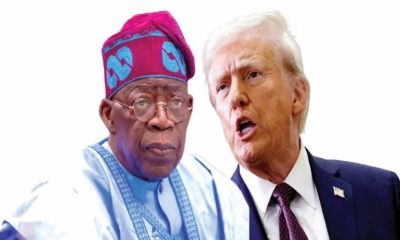columns
Tuesday RapAround: Between Nigeria And Northern Nigeria
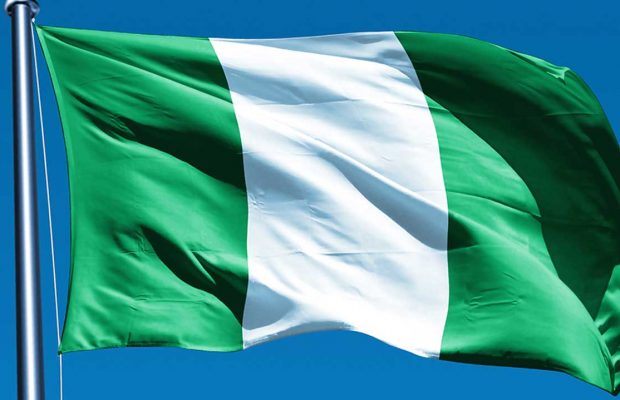
By Michael Ayotunde

*What hope for the rest of the country under the current dispensation?
Nigeria is a nation with more than 180 million (that is if we have not exceeded that figure by now) population.
The country is said to have more than 250 ethnic groups, people who are widely scattered across the nation’s landscape and in one way or the other, are adding vibes and hues to the rhythm that makes the society thick.
Managing such a large number of people – people with diverse orientation and make-up, to be candid, requires quality leadership – leadership that is fearless, courageous, incorruptible, upright, unbiased, responsive, patriotic towards national consciousness and accountable. Accountability even to the very least in the society.
Some nations around the world where there is stability, justice, peace and progress ultimately must have initiated programmes and policies that naturally lay the foundation for peaceful coexistence, tranquillity, openness, and a system where everyone is made to be on board – collective participation (inclusiveness) and adequate representation.
But where these potent ideals are lacking, it is only a failing man who probably is suffering from hallucination or bereft of sound mind that would think the pervading social unrests and agitations in the country are far from the clear leadership gap in the country.
Nigeria, no doubt, has been so unfortunate since independence to be ruled by people who truly did not have the larger interest of the nation at heart. All the nation has been blessed with sectional Shylocks and self-confessed moralists – people whose ultimate agenda is to foist their hidden but unpopular hypocritical style of leadership on the rest of the people.
These opportunists easily forget that power is ephemeral; that power is transient – today you are there, tomorrow you are out. Instead of using the opportunity they have at hand to make life worthwhile and meaningful for everyone irrespective of tribe, region, social, political and religious standing, they are busy pursuing things that further polarized the country; they are in power, yet they still behave immaturely, incoherently, and worse off as though they were in opposition.
Is it until when you offend the sensibility of an average Nigerian with ill-conceived justifications nay explanations to a damaging blunder before we can know that, yes, an autocrat is in town?
Hundreds of thousands of Nigerians, in reality, are out there doing excellently well in their respective chosen carriers. Of course, there are more than enough hands – people that are capable of turning the fortune of the country around within the best possible time. But the question is – would they be given a chance to prove their mettle?
The nation is in a democratic system, yet there’s apparently nothing to suggest the country is actually practicing one of the world’s renowned participatory system of government, a system that nations of the world have utilized to their advantage.
Everything is according to the definition of those in government and not the generally acceptable definition. Once it suits their myopic thinking, then it is right – even though it is against the most basic rules of human existence and co-habitation.
This is why the recent revelation emanating from the World Bank President, Jim Yong Kim, that a man that is supposed to be the face of Nigeria – bastion of hope, justice, oneness, fairness and equity in a nation that prides itself as the giant of Africa, a nation said to be a Federal Republic, asked the World Bank to focus on Northern Nigeria, is both unfortunate and at the same time, not surprising.
Unfortunate in the sense that the president, for the umpteenth time, has let Nigerians down. This is more worrisome because it is not in his attitude to apologize for any wrong doing/steps. To him, everything is right and on point – no going back. But does it really pay off having such an unrepentant leader marshalling the affairs of the country? Is that what Nigeria needs at this critical moment in her chequered history?
Secondly, such delve move can never be a surprise because he has never hide his preference for his region over and above anything else. This is why those who are expecting him to change overnight are missing it.
Contrary to the Federal Government’s claim on Friday that President Buhari’s discussion with the President of the World Bank Group, Jim Yong Kim, was twisted, a huge chunk of the financial institution-backed projects in partnership with the Federal Government is based in the North, as was reported in the media.
The latest criticism took place when Kim, divulged that Buhari had asked the bank to concentrate on northern Nigeria.
Further checks on the World Bank website, projects.worldbank.org, has shown that out of the 14 World Bank-sponsored projects in the country, seven are exclusively for the North, while six others are meant for the whole nation (South-West, South-South, South-East, North-West, North-East, North Central and North West); and the remaining one is for Lagos State. Titled ‘Projects and Operations’, these projects were listed under June 2015 – June 2017 projects.
The World Bank documents did not contain any programme or project specifically designed for the South-East, South-South and the Middle Belt regions since the present administration got into power in 2015.
The figures show that $650m projects are specifically for the North-East, while about $2.9bn worth of projects is for the whole of the country, including the northern states. The ones for Kaduna and Lagos states are state-requested loans, not federal. Just as the North-East deserves special attention, so also is the South-South where oil spillage has devastated many areas. There should have been specific financial commitment for that also.
In all honesty, the North-Eastern Nigeria deserves special attention, going by the years of destruction in that part of the country. But to now neglect other sections of the country blatantly is a great disservice to, not only the present generation but upcoming generations.
No doubt, the amount committed to the North-East is worth it if it is going to keep them from coming to the South to create social and economic problems in the nearest future. But attention must also be paid to specific problems of special areas in the South, more so when large proportions of the funds to offset the loans will come from resources in the South – particularly from the South-South with oil spillage problem.
The essence of government is to build strong institutions, protect and fend for its citizens – and not disparage or treat them unequally. Occupier of public office has the responsibility to be fair to all. It is when these are guaranteed that there can be meaningful development, and long lasting successes recorded.
A stitch in time saves nine.
-

 News4 days ago
News4 days agoInsecurity: Kogi Schools Resume On Monday
-

 Opinion4 days ago
Opinion4 days agoDon’t Pull the Plug: Why Nigerians Are Pleading for the U.S. to Extend Its Police Training Program — and Why It Must Synergize With New Military Arrivals
-

 Crime3 days ago
Crime3 days agoVigilante Reportedly Shoots Colleague Dead In Plateau
-
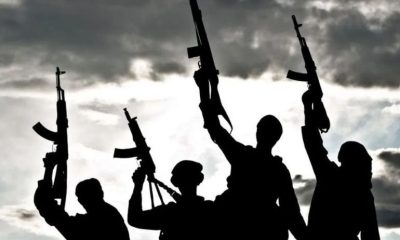
 Crime4 days ago
Crime4 days agoMan Shot Dead In Ambush Along Jol-Sho Road In Plateau


